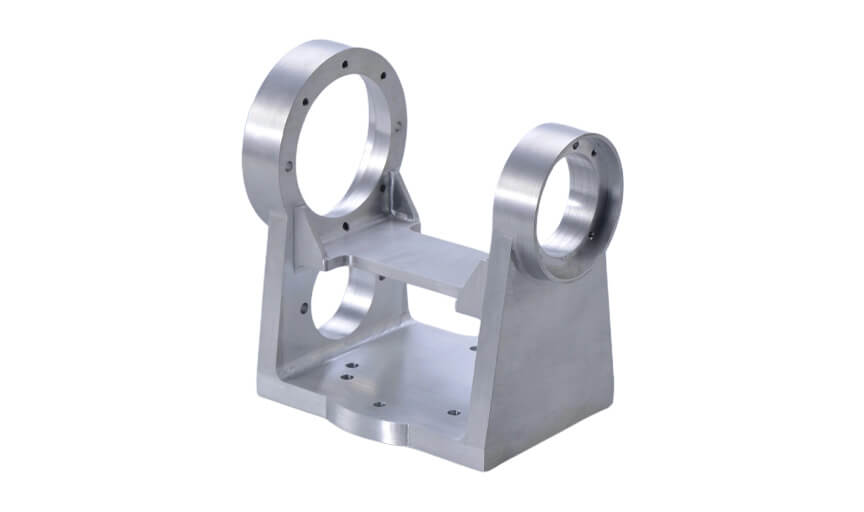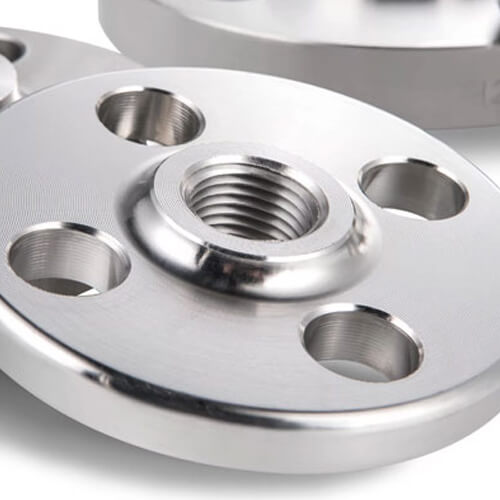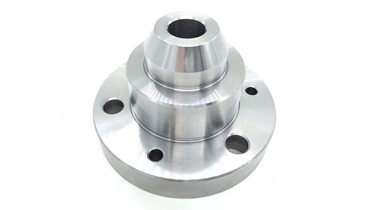This website uses cookies so that we can provide you with the best user experience possible. Cookie information is stored in your browser and performs functions such as recognising you when you return to our website and helping our team to understand which sections of the website you find most interesting and useful.
- Home
- Materials
- CNC Machining Metal
- Aluminum
- Aluminum 7050
Aluminum 7050

Material Type
Metal
Material Name
Aluminum 7050
Alternative Names
EN AW-7050 | 3.4144| AlZn6CuMgZr | A97050
Process Compatibility
CNC Milling, CNC Turning
introduction
Machining Aluminum 7050 Buying FAQ

Aluminum alloy 7050, commonly used in aerospace, is suitable for CNC machining but requires careful consideration. A stable CNC machine is important to minimize vibrations, and securing the workpiece prevents unintended movement during machining.
Select appropriate cutting tools, such as carbide or high-speed steel. Tools with a high helix angle help with efficient chip evacuation. Adjusting cutting speeds and feeds prevents overheating, and using coolant aids in heat dissipation and prolongs tool life. Aluminum 7050 produces long chips, requiring effective control to prevent tool damage. Optimizing tool paths, including climb milling, enhances surface finish and minimizes deflection. The alloy's intrinsic surface finish qualities usually result in satisfactory outcomes, but additional treatments like anodizing may be applied for specific needs.
The chemical composition of the material consists of 89% aluminum (Al), 2.3% copper (Cu), 2.3% magnesium (Mg), 6.2% zinc (Zn), and 0.12% zirconium (Zr). In terms of physical properties, the material has a density ranging from 2.6 to 2.8 g/cm³, a melting point of 494°C, tensile strength of 515 MPa, yield strength of 455 MPa, fatigue strength of 240 MPa, elastic modulus ranging from 70 to 80 GPa, Poisson's ratio of 0.33, elongation of 11%, and a thermal conductivity of 180 W/mK. These properties make the material suitable for various applications, particularly in aircraft and other structures. It is commonly used in fuselage frames, bulkheads, and wing skins.
Properties
Properties Table of Aluminum 7050
| MECHANICAL PROPERTIES | |
|---|---|
| Ultimate Tensile Strength | 470-530 MPa |
| Yield Strength | 390-460 MPa |
| Young's Modulus(Elasticity) | 70-80 GPa |
| Elongation at Break | 5-12 % |
| Physical Properties | |
| Corrosion Resistance | Good |
| Magnetism | Non-magnetic |
| Weldability | Poor |
| Thermal Properties | |
| Thermal Expansion Coefficient | 23-25.4 x 10^-6/°C |
| Thermal Conductivity | 153 W/(m·°C) |
| Electrical Properties | |
| Electrical Resistivity | 4.4 μΩ*cm |
TECHNOLOGY OVERVIEW
Basic Knowledge of Aluminum 7050
What is Aluminum 7050?
Aluminum 7050 is a widely used alloy in the aerospace industry. It can be heat treated, offering high toughness, strong mechanical strength, and good resistance to stress corrosion cracking. It is part of the 7000 series and is composed mainly of aluminum, zinc, and a small amount of copper.
The alloy can undergo heat treatment processes like solution heat treatment and artificial aging to enhance its mechanical properties further. Though not as easily machinable as some other alloys, it remains suitable for standard machining methods. The ability to tailor its properties through heat treatment adds versatility, allowing it to meet specific requirements in various engineering applications.
Advantages of Aluminum 7050
- Excellent strength-to-weight ratio.
- Suitable for environments with moisture or corrosive elements.
- Good resistance to fatigue, preventing failure over time.
- Generally weldable for fabricating complex structures.
- Good machinability in the heat-treated condition.
- Exhibits high damage tolerance, suitable for impact and mechanical stress.
- Allows for various heat treatment processes to enhance mechanical properties.
- Widely used in aerospace for structural components.
Applications of Aluminum 7050
- Aircraft structural components (wing spars, fuselage frames, bulkheads)
- Components in high-performance or racing cars (chassis, structural parts)
- Boat construction components
- High-strength structural components
- Precision machining and tooling equipment parts
- High-performance machinery components
FAQ
Machining Aluminum 7050 Buying FAQ
Other Materials

Aluminum 7075
Aluminum 7075 is a strong and lightweight alloy often chosen because of its high strength-to-weight ratio. It is widely used in CNC machining

Aluminum 6082
Aluminum 6082 is known for being highly resistant to corrosion and possessing exceptional strength.It is a popular choice for applications under stress.

Aluminum 6061
Aluminum 6061 (CNC) is the most popular aluminum alloy. It has good strength-to-weight ratio, excellent machinability and natural corrosion resistance.
Get An Accurate Quote For Your Next Projects
No matter your project is complicated or simple, no matter is metal or plastic, you will get an accurate quotation within 6 hours.
Get A Quote Today